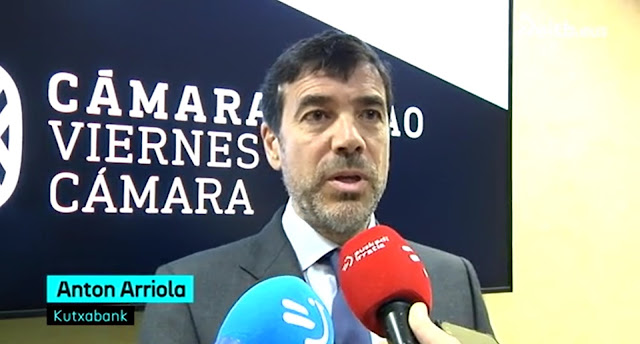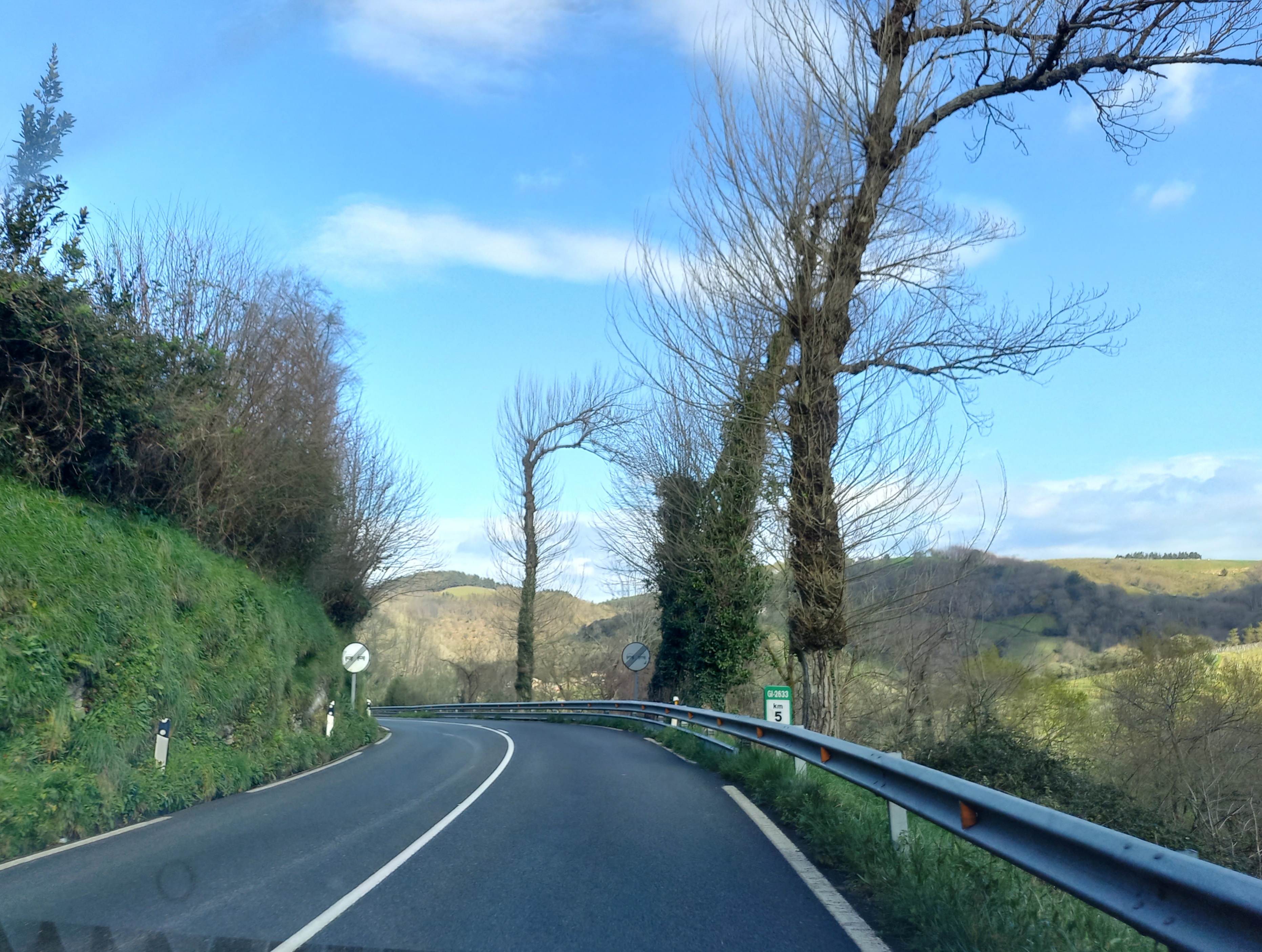The old neoliberal budgets of the new government
- In the same vein is the policy of the new Basque Government. The words yes, but the actions are not clear in the budget presented by the Pradales government.
Imanol Pradales started in Lehendakaritza in June of this year, with a time of 3h30. Supposedly renewed pretensions, forms and proposals for the future expressed the intention to distance oneself from the previous lehendakari. Words, after all. The end of the year has come and the time for action has come. Public policies need funding; without money there is no transformation or direction possible. Budgetary policy is the ‘cotton test’ of the roadmap defined by a government. Actions, I mean.
“New Euskadi. Growing in well-being” is the name of the 2025 budget project presented by the Pradales government. The pp, Vox and Sumar have amended the whole project, while EH Bildu has not. According to the news of last week, the negotiation is over, but EH Bildu does not give up and is ready to reach an agreement. If there are no surprises of the last day, the proposal put forward by PNV and PSE will continue without the support of the opposition.
At the moment there are several arithmetical records in Hego Euskal Herria. So far, the Provincial Council of Gipuzkoa has advanced the budgets with the support of pp. The Alaveses and Biscayan, on the other hand, will be approved for the first time this year with the support of EH Bildu, and the government coalition formed in Navarra by PSN, Geroa Bai and Zurekin Nafarroa has reached an agreement with EH Bildu.
We could say that the gravitational focus of Basque policy (and therefore the core of budgetary policy) is marked by the governments of the PNV-PSE-PSN and generates a certain centripetal force. Over and above the ability to agree with each other, the economic proposals of recent years present a certain stability, with regressive taxation and a shortage of dark resources, which are the solid foundations of the neoliberal policy denounced by different actors in recent years.
Budget numbers
The problem appears in the budgets of the Basque Autonomous Community. To do this, we have to look at the cold numbers hidden under the headlines. In the words of the Basque Government, the budgets have three fundamental pillars: the strengthening of public services, transformative investments and the strengthening of community sentiment.
It is a budget of EUR 15.725 million, which is 4.7% more in theory than in the previous financial year. In theory we say, because if we want to make an honest analysis, we must compare it in the budget with the Gross Domestic Product. That is what shows that a budget is based precisely on exaggeration or on real cuts. In fact, it is normal that the budget should be raised if inflation is increased… but how far should we go in order for the budgets to have the capacity to influence?
True fiscal policy progressivity, public orientation of the organic transition of the productive economy and the multiplication of social spending are key issues in this attack
If we remove the allocations to the APR (which will be taken over by the state in the future), European funds which were not spent last year and debt, this year the budget is 14.1% of GDP. In 2009, however, this weight was 15.6%.
Of the revenue foreseen in the 2024 budget of EUR 15 billion, only EUR 14 000 million will be included in the year-end forecast. Without any intention of correcting this big difference by means of a tax reform, the budget for the year 2025 provides for an income of 15,700. We do not know whether the Basque haciendas will achieve that revenue increase of 1.7 billion over the next year, but the gap between what is planned and what is raised will probably continue to grow, boosting the indebtedness budgets.
Indebtedness is an effective instrument for public policy, but it is used more in periods of recession than in times of growth, as an anti-neoliberal Keynesian policy of an anti-cyclical cycle. The internationalisation of the Basque economy may be the source of the upward gap between expected and earned income, as cold winds from Europe are coming, but it would be good if the new Finance Minister, D’Anjou, were to exercise realism rather than continue to plug the crisis of the NIP model.
Health and scarcity of educational resources
The defence of public services has been one of the pillars of this year’s budget, as has been said earlier. If we look at the appropriations for health and education, as ELA pointed out in its report, we can see how the money for health has decreased compared to GDP. 5.36% to 5.05%. Furthermore, it should be remembered that the European average stood at 7.6% in 2022, far from the CAV budgets.
The situation in education is more complicated, as a new university management department has been set up. Without taking these resources into account, last year’s and this year’s investments are similar. If we look back at Europe, we are very far away; while this year’s investment is 3.81% of GDP, the European Union average is 4.7%.
For the preparation of the budgets, however, revenue is essential. The debate on tax reform has been ongoing in recent years, a constant that has had no practical implications. Despite the news announced by the Foreign Ministers, no reform has been planned over time. The IRPF segments have deflated in recent years, with a measure favorable to higher incomes, which does not have a direct effect on low-income families.
In 2018, when the PNV-PSE coalition was in a government without a majority, the PNV received the support of pp to the budgets of the Basque Government in exchange for approving pp budgets in Spain, accepting a toll to lower the nominal corporate tax rate from 28% to 24%. At present, Bizkaia, despite being the country with the highest level of income, is the country with the lowest income from this tax on profit-making companies.
In the same vein is the policy of the new Basque Government. The words yes, but the actions are not clear in the budget presented by the Pradales government. In this historic impasse in which the economy finds itself, the debate cannot be limited to raising or lowering a number of items, and that too has more words than actions. The real progressivity of fiscal policy, the public orientation to promote the ecological transition of the productive economy and the multiplication of social spending are key issues in this attack. Unfortunately, New Euskadi will not be so new.
Bidali zure iritzi artikuluak iritzia@argia.eus helbide elektronikora
ARGIAk ez du zertan bat etorri artikuluen edukiarekin. Idatzien gehienezko luzera 4.500 karakterekoa da (espazioak barne). Idazkera aldetik gutxieneko zuzentasun bat beharrezkoa da: batetik, ARGIAk ezin du hartu zuzenketa sakona egiteko lanik; bestetik, egitekotan edukia nahi gabe aldatzeko arriskua dago. ARGIAk azaleko zuzenketak edo moldaketak egingo dizkie artikuluei, behar izanez gero.
Duela aste batzuk, Diputazio kalean, Gasteizko erdigunean, bi gizonek etxerik gabeko pertsona bat bota zuten lo egiten zuen lokalaren kanpoaldeko eskailera-buru txikitik. Bota ez ezik, berehala metalezko baranda bat ere jarri zuten lonjaren aurrean. Lokala luzaroan hutsik egon... [+]
From linguistics or glotophobia and, of course, hatred against Basque, we have often seen our Basque become the dandruff of all sticks. Last of all, the president of Kutxabank, Anton Arriola, has been shaking our language and giving us galantas.The President of Kutxabank,
... [+]
Do not look for this connection from Ezkio or Altsasu, let alone crossing the Ebro River through Castejón. The connection, or rather the connections, between the Basque Y and the AVE of Navarre is already a reality. It is these links in the plural that should concern us and... [+]
Don't make a fuss, don't confront, don't victimize... and obey. As oppressed subjects, in this case as Basques, we talk, how many times have we had to listen to them? Ironically, two years ago, at the Euskalale Independentiston Meeting, Esne Arzallus said: "We have arrived here,... [+]
Aurten "Israel Premier Tech" txirrindularitza talde israeldarra ez da Lizarraldeko Miguel Indurain Sari Nagusia lasterketara etorriko. Berri ona da hori Palestinaren askapenaren alde gaudenontzat eta munstro sionistarekin harreman oro etetea nahi dugunontzat, izan... [+]
Intsumituek denbora luzez egindako borroka gogorra eta mingarria izan zen, baina irabazi zuten, eta garaipen hura behin betikoa izango zela uste genuen, atzera bueltarik gabea. Baina badirudi, politikari batzuen ahotik aterata, eskalada militaristari gorazarre egin eta berriz... [+]
Punto Bobo liburuaren irakurketan murgilduta, Itxaso Martin Zapirain egilearen Eromena, Azpimemoria eta Isiltasunak Idazten ikerketa lanean sentitu nuen egiazkotasun eta maila etikoarekin egin dut berriz ere topo. Eta hortaz, hara bueltatu. “Oihu izateko jaio zen isiltasun... [+]
Dirudienez, Euskal Herrian migrazioa arazo bilakatu da azken bi hamarkadetan. Atzerritarrez josi omen dira gure lurrak. Gure kultura arriskuan omen dago fenomeno “berri” horren ondorio. Lapurretak, bortxaketak, liskarrak… Bizikidetza arazo horiek guztiak... [+]
Azken hamarkadetan euskararen biziberritzeak duen erronka handienetakoa, euskararen ezagutzaren unibertsalizazioarekin batera, erabilerarena da. Askotan, gazteen euskararen erabileran jarri ohi dugu fokua, baita euskararen erabilerak izan duen eta izan dezakeen bilakaeraren... [+]
Goizean jaiki orduko hasten dira desegokitasunak. Beharbada lotarako erabili duzun lastaira ere ez zen egokiena. Baina, ezin ba idatzi desegoki sentiarazten nauten guztiez. Horregatik, udaberriko ekinozioa –egunaren eta gauaren arteko oreka– dela eta, oraindik ere,... [+]
Ez da gauza berria politikari profesionalak gizarteko arazoak estaltzeko ahaleginetan ibiltzea. Azkenaldian Denis Itxaso -EAEko Etxebizitza sailburua- entzun dugu etxegabetzeei garrantzia kenduz eta aditzera emanez gurean bazterreko fenomenoa direla; eta Begoña Alfaro... [+]
Antropozentrismoaren aldaera traketsena eurozentrismoa izan zen. Europako mendebaldea, geografikoki, Kontinente Euroasiarraren penintsula txiki bat besterik ez da, baina lau mende luzez gertaera demografiko, teknologiko eta ideologiko batzuk zirela medio, bazter horretako... [+]
Badakizuenok badakizue, beste gauza asko bezala, euskararen aldeko borrokan ere politikoek, eragile batzuek eta hedabideek beraien antzezlana saldu nahi digutela, benetakoa balitz bezala.
Lehen urtean pozik jaso nuen, "Euskaraldi" hau. Zer edo zer zen, ezer ez zegoela... [+]
Euskarak, mendez mende, zapalkuntza sistematikoa jasan du, eta oraindik ere borrokan dabil egunerokoan bere leku duina aldarrikatzeko. Hizkuntza baten desagerpena ez da inoiz berez gertatzen; planifikazio politiko eta sozialak eragiten du zuzenean. Euskaldunoi ukatu egin izan... [+]
Horra Libération egunkariak berriki argitaratu duen idazkia:
“Bayonne” bukatu da, Libérationek “Baiona” idatziko du
Hiri baten izenaren erabilpena ohiturazkoa delarik, egunkari batean izen horren erabilpena aldatzea zaila da. Alta, irakurleen... [+]











